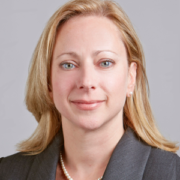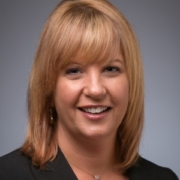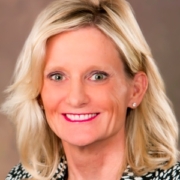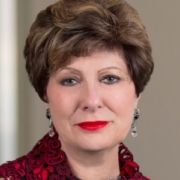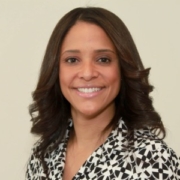Voice of Experience: Beth Paul, Assurance Partner with PwC US
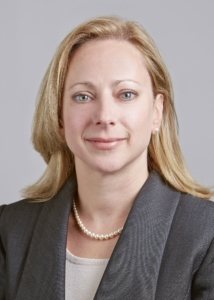 Beth Paul made partner at PricewaterhouseCoopers LLP (PwC) after she was with the firm 13 years. A graduate from Pace University and a skilled accountant, she is guided by a quiet pragmatism and sharp intellect. These qualities give Paul a confidence and sensibility that remains down to earth despite her great success.
Beth Paul made partner at PricewaterhouseCoopers LLP (PwC) after she was with the firm 13 years. A graduate from Pace University and a skilled accountant, she is guided by a quiet pragmatism and sharp intellect. These qualities give Paul a confidence and sensibility that remains down to earth despite her great success.
Paul began working at PwC directly upon graduation in 1992. Her career began in the auditing practice working on companies in the industrial products sector. After spending seven years in that sector, she joined the national professional service group for what was supposed to be a two-year tour in PwC’s SEC services group. Instead, she stayed in that group and was made a partner in 2005, a feat she acknowledges as her proudest professional achievement. “That day created a memory that will last forever. It has been 10 years, but in some ways, it feels like yesterday.”
Use feedback to build your brand
After 22 years with PwC, Paul feels that young women coming into the profession will benefit from understanding the importance of building their brand as well as some of the barriers that can prevent them from doing it most effectively. Essentially, Paul believes that your professional growth is built upon being able to hear what your co-workers, supervisors and mentors have to say about their impression of you and your work.
“You have to get candid feedback early and often. You will get different feedback at each stage of your career—but in order for you to advance, people have to be able to see you in the role. You need to be able to build a brand that allows you to project that image. That is why the feedback is so important; we can all have blinders on as to what we are really like. If you don’t get feedback, you won’t know how to progress—you can’t fix what nobody’s telling you need adjustment.”
Accessible accounting practices are best
In 2012, Paul was asked to join the firm’s accounting services group within the national professional services group as the strategic thought leader. In this role, she works with other leaders in her firm to determine the firm’s position on emerging trends in auditing, accounting and financial reporting. Paul is now deeply engaged in her new role and one of her primary goals is to help the firm share their insights and perspectives on accounting developments through new mediums, such as videos and new distribution channels such as the use of social media and PwC’s CFOdirect e-newsletter and website.
“I am most excited about the fact that we are trying new and different things, like social media, to distribute our content. We are also looking to expand our audience by tailoring the message to a variety of audiences.”
She says that one of the most interesting trends in accounting today is the Financial Accounting Standard Board’s simplification initiative.
“Thinking about ways to change the current standards to remove complexity will help reduce costs, minimize the possibility of inconsistent or incorrect application, and ultimately make it easier for all stakeholders.”
You won’t ever be in the locker room
In terms of barriers for women in her industry, Paul loops back to the importance of being able to receive feedback, and using this feedback in a productive manner instead of dwelling on it or letting it get you down. She reflects about some great advice she was given as a new partner that helped her understand this process and how it can affect women differently than men.
“I was a brand new partner, and a very seasoned female partner said to me, ‘when men are in the locker room together, they can tell each other what they did wrong, then slap each other on the butt and walk out of there with insight into what they need to do better next time. You aren’t going to be in the locker room so, you are going to need to be more proactive in how you get the feedback you need to succeed.’”
This advice helped Paul see how important it was for women to find an advocate who would not be afraid to speak openly with them about their performance. Paul is clear that women and men are definitely different, but she lays part of the responsibility to see that difference—and do something about it – with women.
“You can’t just ignore it; you have to do something about it. You have to be willing to listen to the feedback constructively because the more you are willing to listen, the more people are going to be willing to give you that feedback and help you.”
And, for the women who share a seat at her table, she believes they owe it those who are less tenured to reach out, mentor them and be engaged with the younger women making their way up the ladder.
A calm focus wins over fast and busy
Paul believes that PwC provides a very supportive working environment, for men and women alike. PwC offers flexibility programs to help women and men accommodate their family life and navigate the many decisions between balancing life and work. “I’m proud that we have a very inclusive and collaborative culture.”
Outside the office
When not at work, Paul enjoys her daughter’s competitive cheer competitions. To help balance out the busyness, Paul started practicing yoga three years ago and finds it tremendously beneficial.
“Yoga is really about being in the moment and having that clear focus. I think there is a real place for that. It has impacted me greatly, and not just in a healthy, get-fit way, but from a broader perspective. When you apply that focus to work, you can really get a lot done in a short amount of time.”
By Rebecca S. Caum

